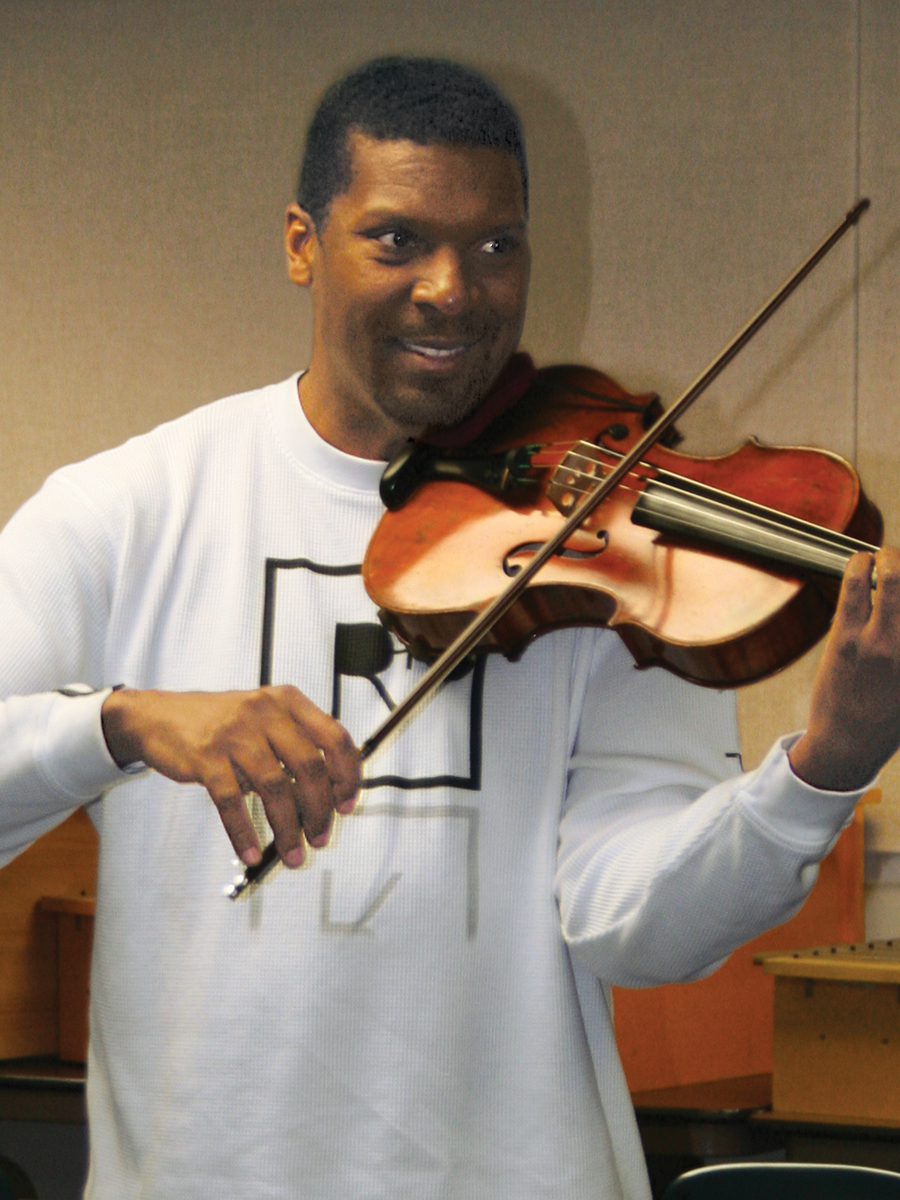A love for the learning process
Arts and Culture
Professor, conductor and violist Amadi Azikiwe helps students build skills and careers
An interview with Madison magazine
I take very seriously the idea that the teacher should be a teacher and a mentor. A teacher who is, along with the rest of my colleagues, actively pursuing the very thing that we are teaching. So we serve as mentors and examples. I have seen that from my own teachers, and I am sincere when I think that it's just as important to lead by example as it is to be able to say, "You're out of tune here" or "You need to use more bow there." I think it's just as important to be able to say, "Where do you see yourself in five years, and let me call up this person, or I suggest that you contact these people and see about some summer employment or some long-term employment."How do you perceive your role as a professor?
Do you feel that you are making an impact?
It's a wonderful, wonderful feeling to help a student be able to make a connection or give a student new ideas and, most importantly, help them come up with their own ideas, and to let them know that it's OK to do that. When you go to college you're enough deer-in-the-headlights anyway, but then when you start thinking about after college, that's a world that's so much bigger, so it's helpful to have a teacher who is constantly out in that world and who can bring back updated situations, if you will. I can say, 'This is how to do it now, and that is different from when I was in college.' All the teachers here realize that and embrace it. In one lesson, I talk to my students entirely about how to build a career.
Do you view teaching as a creative pursuit?
Absolutely. I consider myself a very creative person. That means that I am a diligent problem-solver. I am constantly coming up with ways that my students can improve. When you are a teacher, you are really asking your students to develop the skills to continue teaching themselves. That's the essence of teaching. So anything from doubling the number of studio classes that they have here — which means they all get together and take turns playing for one another — to a practice buddy system, where each of the students has a buddy and they take turns practicing in front of one another, so that they can get feedback on their own practice habits. Everyone can benefit from that, including me.
Is it gratifying when your students really get it?
It is amazing when you see someone dedicate himself or herself and work hard and then, often all at once, I see very rapid growth. And, from that point, you become more like a good listening friend instead of a taskmaster because then you see that they are coming up with their own ideas. When you have an exchange of ideas rather than just instruction, that is wonderful. Then, even if you don't like something that a student is doing, you can say, "Justify what makes you want to do that." It's when they start to notice stuff on their own and we start to talk about texture and climaxes and suspense and drama, that's when it gets to be the most fun for the teacher.
It sounds as if you truly love the learning process?
Even as faculty members, we are still students of life. We want to push the students and ourselves to do more and more, and every once in awhile one of us will turn around and say, "Oh, man, I took on too much, didn't I?" But that's how you grow. You don't really grow by just doing exactly what you are capable of. You grow by doing more, and then becoming more.
